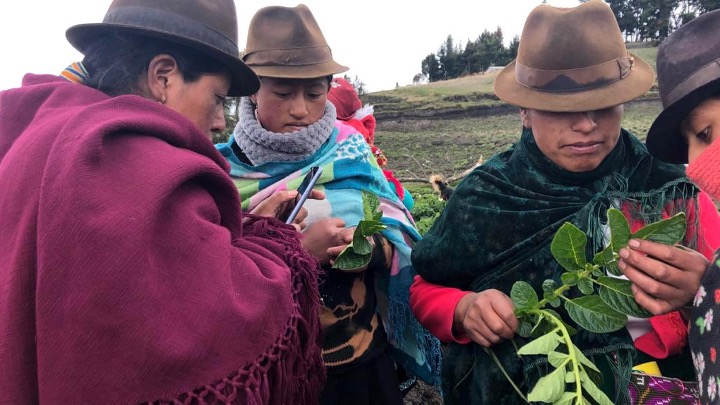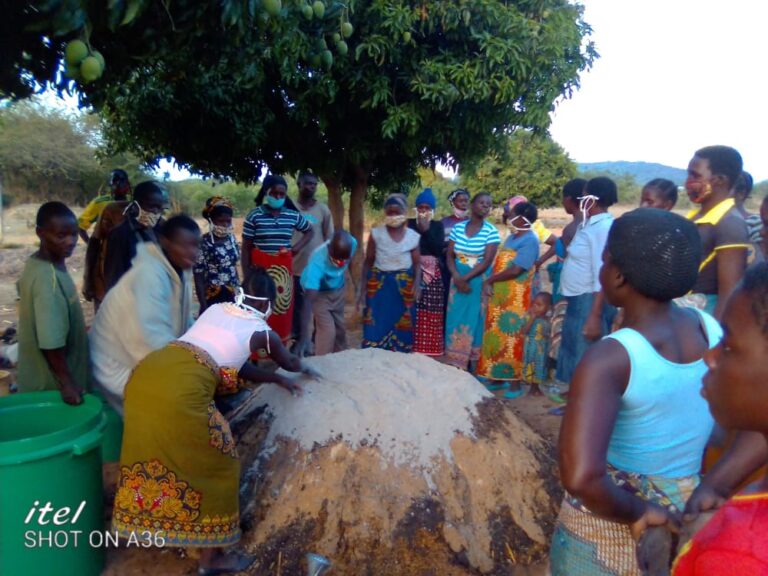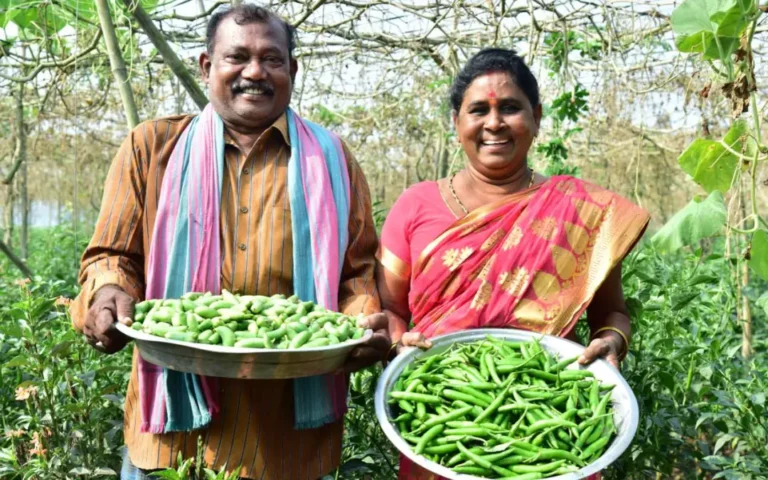
Burlington, VT – In an article published today in Nature Food, a team of international experts delves into the urgent need for democratizing knowledge to revolutionize global food systems. Titled “Knowledge Democratization Approaches for Food Systems Transformation,” the article emphasizes the necessity of incorporating traditional, Indigenous, and place-based knowledges into decision-making processes to address blind spots in current food system policies and actions. A consortium of experts from diverse backgrounds, including V. Ernesto Méndez and Colin R. Anderson, professors at the University of Vermont and co-directors of the UVM Institute for Agroecology (IfA), shed light on the critical role of democratizing knowledge in transforming global food systems.
Méndez emphasizes the human significance of this research, “Until now we have privileged western scientific knowledge, and this article urgently calls for us to include different types of knowledge and to recognize the people who have developed it.”
The article advocates for a shift towards participatory and transdisciplinary approaches that integrate a wide array of knowledge systems, including those of Indigenous, scientific, and traditional understandings. By embracing this diversity of practices, researchers can generate contextually relevant solutions and foster more inclusive and equitable food systems. The authors also suggest that this is of primary importance when developing policy that impacts food systems.
Led by Samara Brock from Yale University, the article is an outcome of an international process convened by the Global Alliance for the Future of Food on the Politics of Knowledge that brought together food systems leaders to strategize on advancing research and evidence for agroecology. Drawing from case studies worldwide, the authors highlight innovative approaches that involve local actors in knowledge production and exchange. Examples include farmer-managed natural regeneration in sub-Saharan Africa, the 1,000 Farms initiative in the USA, and the Hua Parakore system in Aotearoa New Zealand. They also provide examples of policy groups who are using this co-creator model to improve outcomes and increase adoption of innovative approaches.
Despite the breadth of disciplines of the authors Méndez points to the cohesive perspective of the paper’s contributors, “It is key to note the diversity of sectors represented in the authorship- we have scientists, practitioners, staff from non-profit organizations and philanthropists- all making an urgent call for us to democratize our knowledge base as the foundation to attain an equitable and sustainable food system transformation.”
The principles outlined in the article emphasize the importance of epistemic justice, intercultural co-creation, and knowledge mutualism and exchange in democratizing knowledge-policy processes. These principles, the authors argue, are essential for addressing biases and empowering marginalized communities in shaping food system transformations.



About Nature Food:
Nature Food is a monthly online journal publishing top-tier original research, reviews, comments and opinions on the theme of food, crossing the disciplines of food-related research in the natural, applied and social sciences. With a comprehensive scope, Nature Food provides researchers and policy-makers with a breadth of evidence and expert narratives on optimizing and securing food systems for the future.
About the Authors:
The study was led by Samara Brock at Yale and the authors of the article represent a diverse group of experts from academia, research institutions, and civil society organizations worldwide. Their collective expertise spans fields such as agroecology, Indigenous knowledge systems, participatory research, and food sovereignty.
Samara Brock, Lauren Baker, Amanda Jekums, Faris Ahmed, Margarita Fernandez, Maywa Montenegro de Wit, Francisco J. Rosado-May, V. Ernesto Méndez, Colin R. Anderson, Fabrice DeClerck, Molly D. Anderson, Rachel Bezner Kerr, Brendan Hoare, Hannah Wittman, Amaury Peeters , Peter Gubbels, Cerasela Stancu, Stéphane Bellon , Jonathan G. Lundgren, Swati, Vijay Thallam, Jane Maland Cady, Paul Rogé
About the UVM Authors:
V. Ernesto Mendez is Professor of Agroecology in the department of Agriculture, Landscape and Environment and co-director of the Institute for Agroecology (IfA) at the University of Vermont. His research and teaching focus on agroecology, agrifood systems, smallholder coffee systems, participatory action research (PAR), and transdisciplinary research approaches. He also serves as vice-president of the board of directors of the Latin American Scientific Society of Agroecology (SOCLA).
Colin Anderson is an Associate Research Professor in the department of Agriculture, Landscape and Environment at UVM, and the Associate Director of the IfA. His work focuses on community- and people-led processes of transformation for resilience, social justice and well-being. Colin is committed to engaged and participatory research, learning and action in his methodology and pedagogy. This is anchored by a commitment to knowledge mobilization, which involves a political and social process of co-producing and deploying knowledge.
About the IFA at UVM:
The UVM Institute for Agroecology (IfA) is seeding more equitable and sustainable food systems. IfA uses a systems approach that addresses the root causes of problems in the food system. We seek to center equity, participation, and social transformation in our research, learning, and action programs across diverse geographies.
For media inquiries or further information, please contact:
Reid Parsons, Reid.parsons@uvm.edu
Ren Dillon, Director of Strategic Communication, College of Agriculture and Life Sciences, Ren.Dillon@uvm.edu, 802-793-2209
Reference:
10.1038/s43016-024-00966-3
https://www.nature.com/articles/s43016-024-00966-3
IfA’s publications page: https://www.uvm.edu/agroecology/publication/knowledge-democratization-approaches-for-food-systems-transformation/
